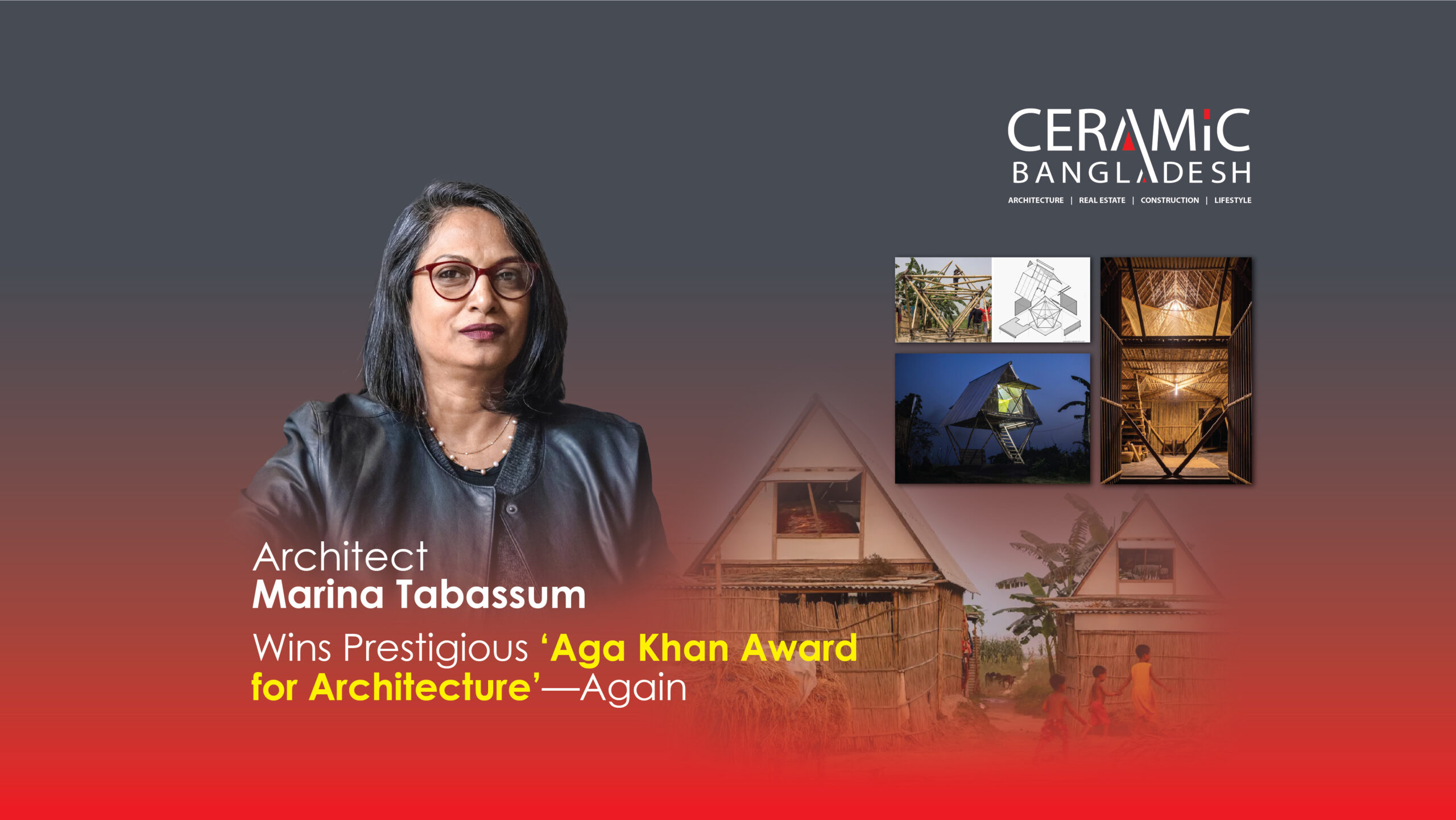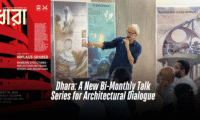
Marina Tabassum, one of South Asia’s most distinguished architects, has once again earned global recognition by winning the 2025 Aga Khan Award for Architecture.
This marks her second time receiving the honour, a rare achievement that places her among an elite group of architects celebrated for their contributions to socially impactful design.

Tabassum’s winning project, Khudi Bari—meaning “tiny house” in Bengali—is a modular, portable shelter designed for communities displaced by river erosion and climate-related disasters in Bangladesh.
Constructed from bamboo and metal joints, the structure is lightweight, affordable, and easy to assemble. Each unit costs less than $300, making it accessible to low-income families living in flood-prone regions.
The design reflects a deep understanding of local materials and environmental challenges, offering a dignified solution to one of the country’s most pressing humanitarian issues.
The Aga Khan Award for Architecture, established in 1977 by His Highness the Aga Khan, is one of the most prestigious honours in the field.

It is awarded every three years to projects that not only demonstrate architectural excellence but also improve the quality of life in Muslim societies.
The award carries a total prize of $1 million, distributed among selected winners. This year’s winners include projects from China, Egypt, Pakistan, Palestine, and two from Iran, each chosen for their cultural relevance, sustainability, and social impact.
Tabassum’s Khudi Bari stood out for its simplicity and transformative potential. The project was praised by the award jury for embodying architecture that uplifts and empowers, especially in the face of climate displacement. It offers a scalable model for humanitarian housing, rooted in empathy and resilience.
This is not Tabassum’s first time in the spotlight. She previously won the Aga Khan Award in 2016 for the Bait ur Rouf Mosque in Dhaka, a minimalist structure that redefined religious architecture through its use of natural light and brickwork.

Located in a low-income neighborhood, the mosque was celebrated for its spiritual ambience and community-centred design. That recognition marked the rise of a Bangladeshi voice of global significance, and her latest achievement further strengthens that legacy.
Among those who celebrated her achievement was Nobel Laureate Professor Muhammad Yunus, Chief Adviser to the Government of Bangladesh. In a public statement, Yunus expressed heartfelt congratulations, calling the award “a source of great pride for Bangladesh.”
The chief adviser commended Tabassum’s work on Khudi Bari as “brilliantly demonstrating how architecture can serve humanity with compassion and vision.” He emphasised that her design goes beyond aesthetics, highlighting dignity, resilience, and the power of human ingenuity to address the greatest challenges of our time.
Yunus also reflected on her earlier triumph with the Bait ur Rouf Mosque, describing it as “a milestone that celebrated the timeless values of spirituality, community, and simplicity in architecture”.
He acknowledged Tabassum’s ongoing service to the nation, including her role as Chairperson of the Bangladesh National Museum Governing Council and her consultancy on the July Uprising Memorial Museum.
A photograph accompanying the message shows Professor Yunus speaking with Tabassum during a recent visit to the July Uprising Memorial Museum in Dhaka this year—a moment that underscores her continued engagement with projects of national significance.

Through Khudi Bari, Tabassum has once again placed Bangladesh on the global stage of creativity and social innovation. Her work transforms adversity into opportunity, offering hope and practical solutions to those most affected by climate change.
With two Aga Khan Awards and a growing portfolio of socially driven projects, Marina Tabassum continues to redefine architecture—not just in Bangladesh, but globally—as a force for equity, resilience, and human dignity.
Written by Nibir Ayaan




